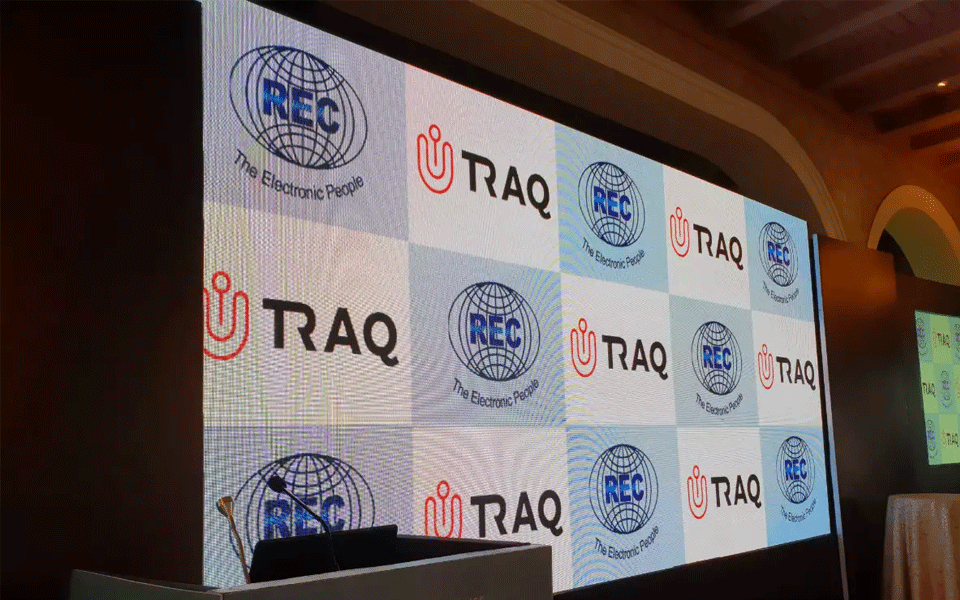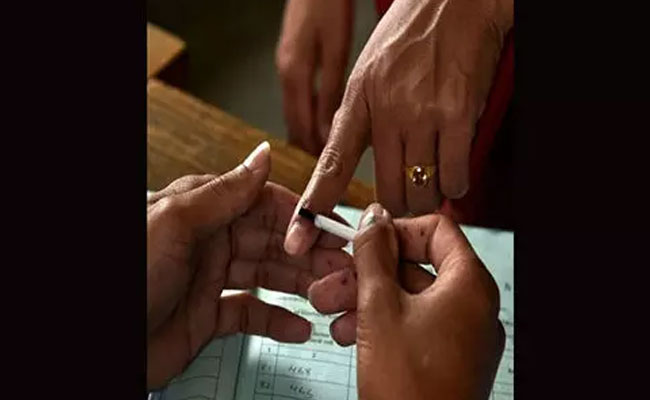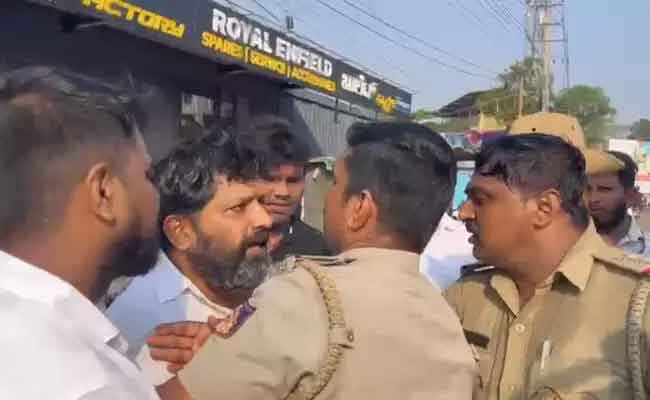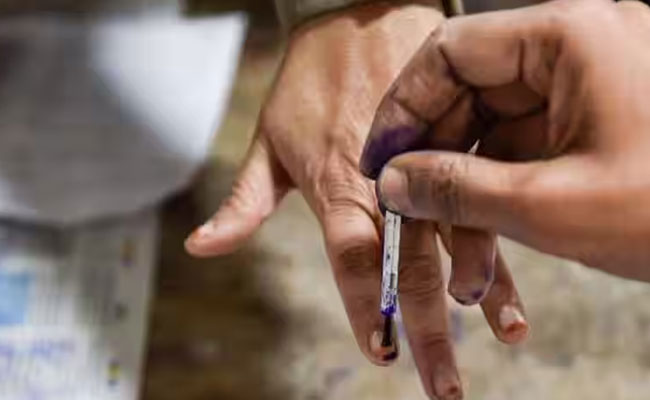New Delhi, Sep 21 : Ramakrishna Electro Component Pvt Ltd Group (REC), an India-based semiconductor distribution company, on Friday launched a Vehicle Tracking System (VTS), the first of its kind module that will primarily use an Indian satellite for navigation.
The company's UTRAQ brand which is manufactured by Shanghai Mobiletek is an endeavour to provide an alternative to the Indian customers from the currently used GPS application that is working on US Satellites.
"It will be changing the way of conventional tracking that is done in the past. Major change we are anticipating is that the VTS industry will be changing their designs as in the coming year it will be mandatory from the government to use Indian Regional Navigation Satellite System (IRNSS) device," Shivang Luthra, Managing Director, REC said at a press conference.
Two UTRAQ models L100 and L110 were launched and according to the company officials, they are planning to start mass production of the products soon in India under 'Make In India' programme.
"The cheapest available module costs $14 a unit. Our module without antenna will cost in single digit and one with antennas at a conservative estimate will cost in double digits but less than imported modules," Luthra said.
The module will be produced at Shanghai Mobiletek factory in China and the chips will be made by STMicroelectronics.
Let the Truth be known. If you read VB and like VB, please be a VB Supporter and Help us deliver the Truth to one and all.
New Delhi (PTI): The Delhi High Court on Thursday listed for hearing on August 14 petitions by WhatsApp LLC and its parent company Facebook Inc, now Meta, challenging the 2021 Information Technology (IT) rules for social media intermediaries requiring the messaging app to trace chats and make provisions to identify the first originator of information.
WhatsApp informed the Delhi High Court that its more than 400 million users in India primarily rely on the platform for its robust privacy features. The messaging giant said that that it would cease operations in India if compelled to compromise message encryption, a pivotal safeguard ensuring only intended parties can access message content. Representing the Meta-owned company, its lawyer firmly stated to the court, "As a platform, we are stating that if we are mandated to dismantle encryption, then WhatsApp will exit.”
Observing that the matter would have to be argued by the parties, a bench headed by Acting Chief Justice Manmohan asked if the issue has been considered in any other country.
"There is no such rule anywhere else in the world. Not even in Brazil," the lawyer appearing for WhatsApp said, adding that the requirement was against the privacy of users and the rule was introduced without any consultation.
The bench, also comprising Justice Manmeet P S Arora, said privacy rights were not absolute and "somewhere balance has to be done."
Central government counsel said the rule was significant when objectionable content is spread on platforms in cases such as those of communal violence.
The Information Technology (Intermediary Guidelines and Digital Media Ethics Code) Rules, 2021 were announced by the government on February 25, 2021 and required large social media platforms like Twitter, Facebook, Instagram and WhatsApp to comply with the latest norms.
The bench ordered that the matter be listed for hearing on August 14 to await the transfer of all other petitions challenging several aspects of the 2021 IT Rules to it pursuant to a Supreme Court order.
During the hearing, WhatsApp's counsel said steps have been taken to "contain virality" and it was possible to trace the originator "traditionally" by examining the sequence of senders of a message.
"They say open the entire technology. Is it proportional? I am caught in between," he added.
The counsel also informed the court that all platforms would have to comply with the new data protection law, which deals with collection, processing and sharing of data, once the relevant rules are framed.
In its petition filed in 2021, WhatsApp has said the requirement of intermediaries enabling the identification of the first originator of information in India upon government or court order puts end-to-end encryption and its benefits "at risk".
WhatsApp LLC has urged the high court to declare Rule 4(2) of the intermediary rules as unconstitutional, ultra vires the IT Act and illegal and sought that no criminal liability be imposed on it for any alleged non-compliance with Rule 4(2) which requires enabling the identification of the first originator of information.
WhatsApp said the traceability provision is unconstitutional and against the fundamental right to privacy.
The plea has said the traceability requirement forces the company to break end-to-end encryption on its messaging service, as well as the privacy principles underlying it, and infringes upon the fundamental rights to privacy and free speech of the hundreds of millions of citizens using WhatsApp to communicate privately and securely.
In its reply, the Centre has said the law empowers it to expect such entities to create safe cyberspace and counter “illegal content” either themselves or by assisting the law enforcement agencies.
The Centre has told the court that Section 87 of the Information Technology Act gave it power to formulate Rule 4(2) of the Intermediary Rules which mandates a significant social media intermediary to enable the identification of the first originator of an information in “legitimate state interest” of curbing the menace of fake news and offences concerning national security and public order as well as women and children.
The Centre has also stated that if a platform does not have the means to trace the first originator without breaking the encryption then it is the platform which “ought to develop such mechanism” in larger public duty.
On March 22, the Supreme Court transferred to the Delhi High Court a batch of pleas pending before different high courts across the country challenging the Information Technology (Intermediary Guidelines and Digital Media Ethics Code) Rules, 2021.
Several petitions were pending on the issue before different high courts including Karnataka, Madras, Calcutta, Kerala and Bombay high courts.


_vb_57.jpeg)


